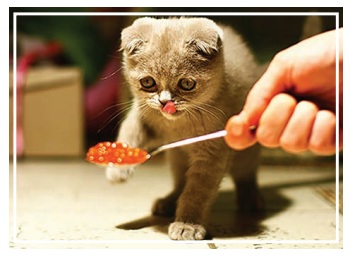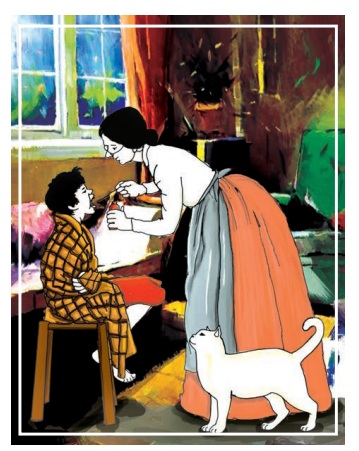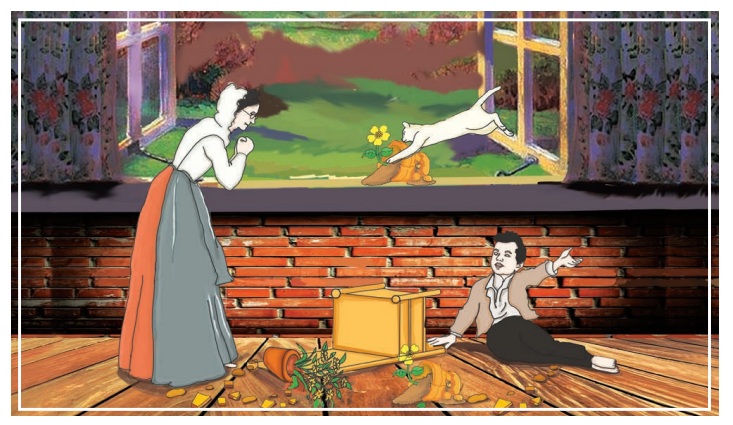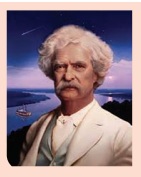(An Extract from The Adventures of Tom Sawyer) | by Mark Twain | English Supplementary Story - The Cat and the Painkiller | 9th English : UNIT 4 : Supplementary : The Cat and the Painkiller - by Mark Twain
Chapter: 9th English : UNIT 4 : Supplementary : The Cat and the Painkiller - by Mark Twain
The Cat and the Painkiller
Supplementary
The Cat and the Painkiller
(An Extract from The Adventures of Tom Sawyer)
Mark Twain
Now read the extract "The Cat and the Painkiller" to
enjoy the pranks played by Tom Sawyer on Peter, the cat.

Becky Thatcher, his friend, had stopped coming
to school. This disturbed Tom. He became unhappy. The charm of life was gone;
there was nothing but boredom left. He put his hoop away, and his bat; there
was no joy in them anymore and so his aunt Polly was concerned. She was infatuated with patent medicines and all new
methods of producing health or mending it. She was an incurable experimenter in
these things.
She began to try all manners of remedies on
Tom. The water treatment was new, now, and Tom’s low condition was a windfall
to her. She had him out at daylight every morning, stood by him up in the
wood-shed and drowned him in cold water; then she rubbed him hard down with a
towel like a file; then she rolled him up in a wet sheet and put him away under
blankets.
Yet not withstanding all this, the boy grew
more and more sad and pale and dejected. She added hot baths, sitz baths,
shower baths, and plunges. The boy remained
bored. She began to assist the water with a slim oatmeal diet and
blister-plasters. She calculated his capacity and filled him up every day with quack cure-alls. He
became fed up and so he thought over various plans of relief, and finally hit
upon that of professing to be fond of pain-killer. He asked for it so often that
he became a nuisance, and his aunt ended by telling him to help himself and
quit bothering her.
She found that the medicine did really
diminish, but it did not occur to her that the boy was mending the health of a
crack in the sitting room floor with it.

One day Tom was in the act of dosing the crack
when his aunt’s cat Peter came along purring, eyeing the teaspoon greedily, and
begging for a taste. Tom said, ‘Don’t ask for it unless you want it, Peter’.

But Peter signified that he did want it.
‘You better make sure.’
Peter was sure.
‘Now you’ve asked for it, and I’ll give it to
you, because there ain’t anything mean about me; but if you find you don’t like
it, you mustn’t blame anybody but your own self.’
Peter was agreeable. So Tom opened his mouth
and poured down the pain-killer. Peter sprang a couple of yards in the air, and
then delivered a war-whoop and set off round and round the room, banging
against furniture, upsetting flower-pots, and making general confusion. Next he
rose on his hind feet and danced around, in a frenzy
of enjoyment, with his head over his shoulder and his voice proclaiming his
happiness. Then he went tearing around the house again spreading chaos and
destruction in his path. Aunt Polly entered in time to see him throw a few
double somersaults, deliver a final mighty
hurrah, and sail through the open window, carrying the rest of the flower-pots
with him. The old lady stood petrified with astonishment, peering over her glasses; Tom lay on
the floor expiring with laughter.
‘Tom, what on earth ails that cat?’
‘I don’t
know, aunt,’ gasped the boy.
‘Why, I never see anything like it.
What did make him act so?’
‘Deed I don’t know, Aunt Polly; cats always act
so when they’re having good time.’
‘They do, do they?’ There was something in the
tone of that made Tom apprehensive.
‘Yes’m. That is, I believe they do.’
‘You do?’
‘Yes’m.’
The old lady bent down and took the teaspoon
and held it out! Tom winced and dropped his eyes. Aunt Polly raised him by the
usual handle – his ear – and cracked his head soundly with her thimble.
‘Now, sir, what did you want to treat that poor
dumb beast so, for?’
‘I done it out of pity for him - because he
hadn’t any aunt.’
‘Hadn’t any aunt! – you numbskull. What has
that got to do that with it?’
‘Heaps. Because if he’d had one she’d burnt him
out herself! She’d a roasted bowel out of him ‘thout any more feeling than if
he was a human!’
Aunt Polly felt a sudden painful regret. This
was putting the thing in a new light; what was cruelty to a cat might be
cruelty to a boy too. She began to soften; she felt sorry. Her eyes watered a
little, and she put her hand on Tom’s head and said gently:
‘I was meaning for the best, Tom. And, Tom, it
did do you good.’
Tom looked up in her face with just a
recognisable twinkle peeping through his gravity.
‘I know you was meaning for the best, aunty,
and so was I with Peter. It done him good, too. I never see him around so
since’
‘Oh, go ‘long with you, Tom, before you annoy
me again. And you try and see if you can’t be a good boy, for once, and you
needn’t take any more medicine.’
About the Author
Samuel Langhorne Clemens (1835-1910), better
known by his pen name Mark Twain, was an American writer, humourist, entrepreneur, publisher and lecturer. Twain was raised in Hannibal, Missouri,
which later provided the setting for his novels. His famous works are The Adventures of Tom Sawyer and The Adventures of
Huckleberry Finn.

Related Topics